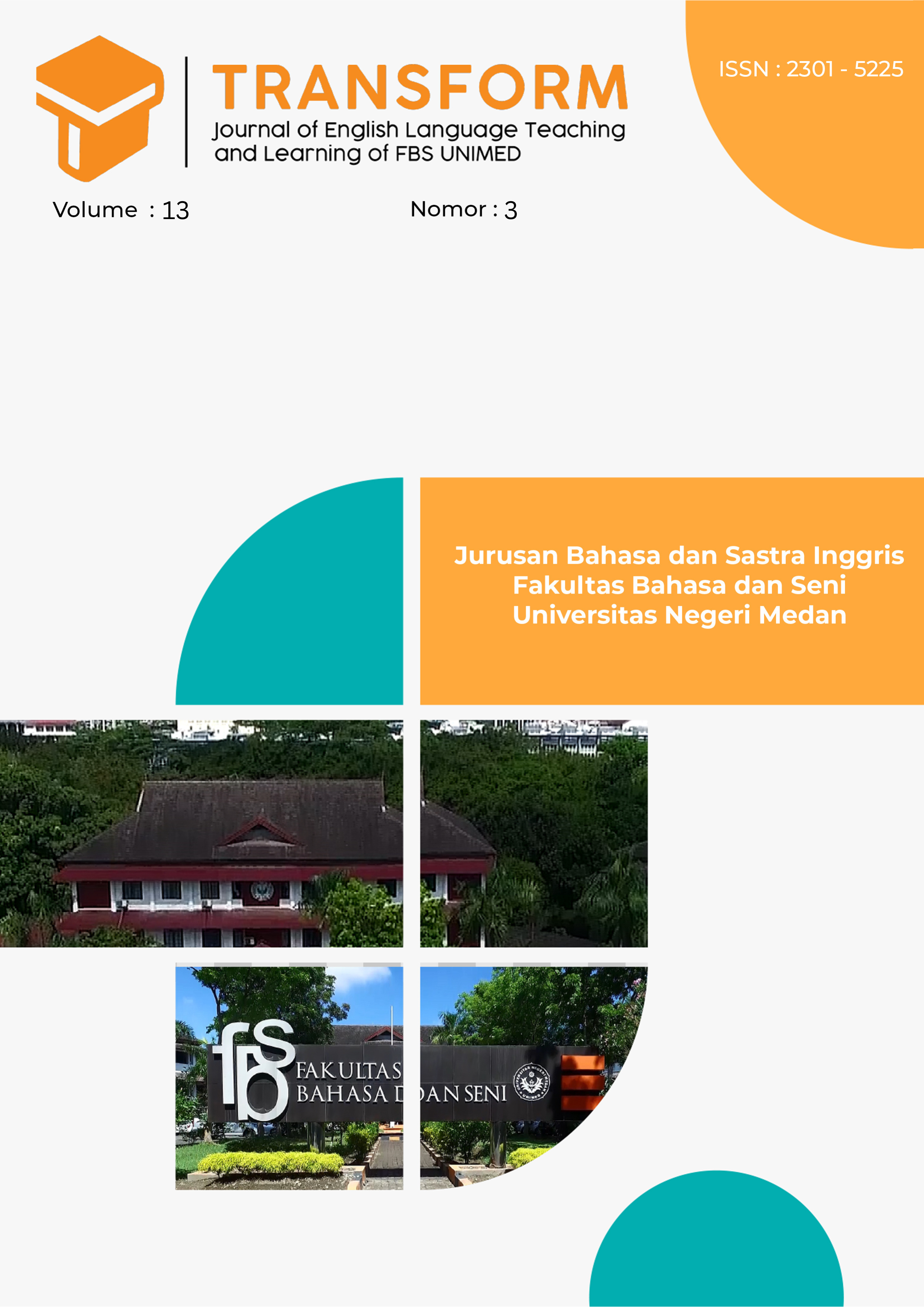Strategies to Optimise Long-term Memory in Learning Vocabulary
DOI:
https://doi.org/10.24114/tj.v13i3.67207Keywords:
Long-term Memory, Vocabulary, Learning Strategies, Spaced Repetition, Contextualized Learning, Visual Aids, Mobile Apps, Associate LearningAbstract
Optimizing long-term memory in vocabulary is a significant challenge for many university students. The author explores various strategies which include: (1) spaced repetition, (2) use of mnemonic devices, (3) contextual learning, (4) active use, (5) visual aids and mind mapping, (6) self-testing with mobile apps, and (7) associative learning. Each strategy is discussed in depth in current research. The findings show that a combination of several strategies, such as spaced repetition with memory practice, the use of verbal mnemonics, contextualized learning, and visual aids, can significantly improve vocabulary retention and language comprehension.References
Al-Jarf, R. (2022). Learning Vocabulary in the App Store by EFL College Students. Online Submission, 5(1), 216-225. DOI: 10.47191/ijsshr/v5-i1-30
Feng, R., Alsager, H. N., Azizi, Z., & Sarabani, L. (2023). Impact of mind-mapping technique on EFL learners' vocabulary recall and retention, learning motivation, and willingness to communicate. Heliyon, 9(6). DOI: 10.1016/j.heliyon.2023.e16560
Goh, C. C., & Vandergrift, L. (2021). Teaching and learning second language listening: Metacognition in action. Routledge.
Heidari, A. A., & Karimi, L. (2015). The effect of mind mapping on vocabulary learning and retention. International Journal of Educational Investigations, 2(12), 54-72.
Kim, H., Shin, G.-H., & Hwang, H. (2020). Integration Of Verbal and Constructional Information in The Second Language Processing of English Dative Constructions. Studies in Second Language Acquisition, 42(4), 825–847. DOI: 10.1017/S0272263119000743
Li, J., Jiang, H., Shang, A., & Chen, J. (2019). Research on associative learning mechanisms of L2 learners based on complex network theory. Computer Assisted Language Learning, 34(5–6), 637–662. DOI: 10.1080/09588221.2019.1633356
Linck, J. A., Osthus, P., Koeth, J. T., & Bunting, M. F. (2014). Working memory and second language comprehension and production: A meta-analysis. Psychonomic bulletin & review, 21, 861-883. DOI: 10.3758/s13423-013-0565-2
Lo, S. (2024). Vocabulary learning through viewing dual-subtitled videos: Immediate repetition versus spaced repetition as an enhancement strategy. ReCALL, 36(2), 152–167. DOI: 10.1017/S0958344024000053
Loewen, S., & Sato, M. (2018). Interaction and instructed second language acquisition. Language Teaching, 51(3), 285-329. DOI: 10.1017/S0261444818000125
Moody, Stephanie, Xueyan Hu, Li-Jen Kuo, Mohammed Jouhar, Zhihong Xu, and Sungyoon Lee. (2018). Vocabulary Instruction: A Critical Analysis of Theories, Research, and Practice. Education Sciences. 8(4), 180. DOI: 10.3390/educsci8040180
Moreira, B. F. T., Pinto, T. S. S., Starling, D. S. V., & Jaeger, A. (2019, February). Retrieval practice in classroom settings: A review of applied research. In Frontiers in Education, 4(5). DOI: 10.3389/feduc.2019.00005
Pateşan, M., Balagiu, A. & Alibec, C. (2018). Visual Aids in Language Education. International Conference Knowledge-Based Organization, 24(2) 356-361. DOI: 10.1515/kbo-2018-0115
Samortin, M. (2020). Effects of gamified learning activities in enhancing junior high school students’ English vocabulary retention. Asian Journal on Perspectives in Education, 1, 71-85. Retrieved from https://ajpe.feu.edu.ph/index.php/ajpe/article/view/7641
Schmitt, N. (2014). Size and depth of vocabulary knowledge: What the research shows. Language learning, 64(4), 913-951. DOI: 10.1111/lang.12077
Strong B. (2023). Retrieval, repetition, and retention: unveiling vocabulary acquisition strategies for ESL learners. Art Human Open Access Journal. 5(3), 185-190. DOI: 10.15406/ahoaj.2023.05.00206
Toth, P. D., & Davin, K. J. (2016). The sociocognitive imperative of L2 pedagogy. The Modern Language Journal, 100, 148–168. DOI: 10.1111/modl.12306
Zakeri, J., & Khatibi, M. B. (2014). A Much-needed Boost to EFL Learners’ Vocabulary; the role of associative learning. Procedia-Social and Behavioral Sciences, 98, 1983-1990. DOI: 10.1016/j.sbspro.2014.03.632
Downloads
Published
How to Cite
Issue
Section
License
Copyright (c) 2025 Sabrina Salsabila, Didik Santoso

This work is licensed under a Creative Commons Attribution-ShareAlike 4.0 International License.
Authors who publish with this journal agree with the following terms:
- Authors retain copyright and grant the journal right of first publication with the work simultaneously licensed under a Creative Commons Attribution License that allows others to share the work with an acknowledgment of the work's authorship and initial publication in this journal.
- Authors are able to enter into separate, additional contractual arrangements for the non-exclusive distribution of the journal's published version of the work (e.g., post it to an institutional repository or publish it in a book), with an acknowledgment of its initial publication in this journal.
- Authors are permitted and encouraged to post their work online (e.g., in institutional repositories or on their website) prior to and during the submission process, as it can lead to productive exchanges, as well as earlier and greater citation of published work (See The Effect of Open Access).
- This work is licensed under a Creative Commons Attribution-ShareAlike 4.0 International License.








